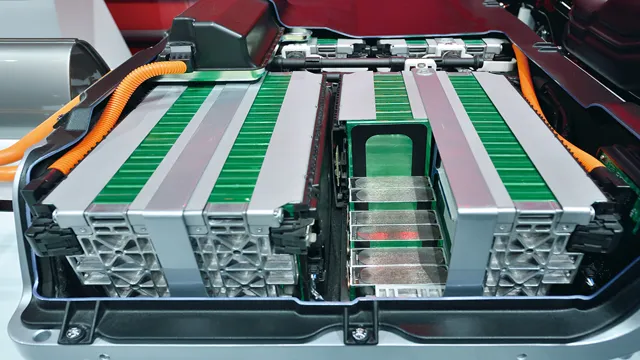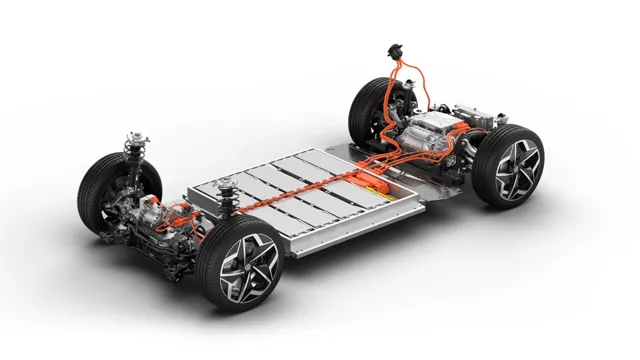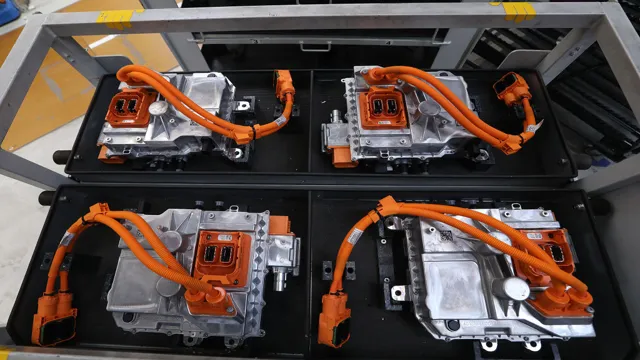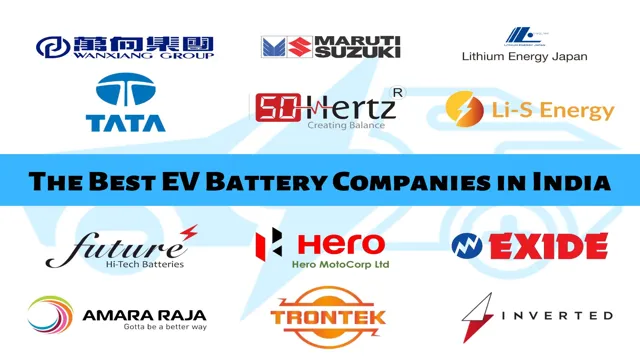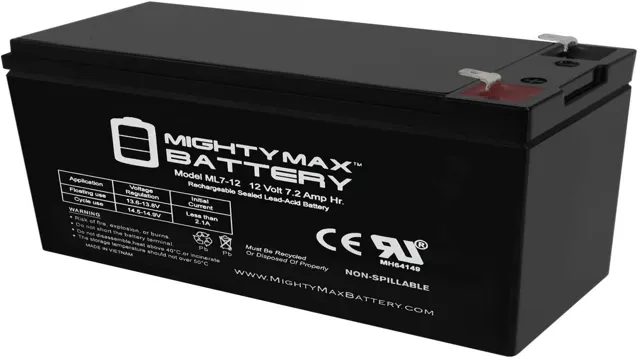Revolutionizing the Road: Exploring the Advancements of Battery-Powered Electric Cars
Electric cars are quickly gaining popularity as a sustainable alternative to traditional gasoline-powered vehicles. With the world becoming increasingly aware of the detrimental effects of fossil fuels, battery-powered electric cars are emerging as a promising solution for reducing carbon emissions and air pollution. The future of transportation seems to be heading towards a battery-powered revolution, with many automakers investing heavily in research and development of electric cars.
In fact, it is predicted that by 2030, more than 30% of new cars sold worldwide will be electric. But why are battery-powered electric cars so appealing to consumers? For starters, they offer a smooth and silent ride, instant torque, and low maintenance costs. They are also much better for the environment as they emit zero tailpipe emissions and are fuelled by renewable energy sources such as solar and wind.
However, the adoption of electric cars has been hindered by concerns about range anxiety and the lack of charging infrastructure. While batteries are improving, allowing for longer ranges, and charging stations are becoming more widespread, there is still work to be done to convince consumers that electric cars are a viable option. In conclusion, the future of transportation is looking bright with the growing popularity of battery-powered electric cars.
With their sustainability and impressive features, there is no doubt that they will play a significant role in shaping the way we move around the world. As we move towards a greener and more sustainable future, it’s essential to embrace the transition to electric cars and make the most of their benefits.
Benefits of Battery Power
The battery powered electric car has many benefits over its gas-powered counterpart. For one, it’s much more environmentally friendly. With no emissions coming from the tailpipe, battery powered electric cars greatly reduce air pollution and greenhouse gas emissions.
Additionally, they are more energy-efficient, as they convert more of their stored energy into usable power than gas-powered cars. This translates to lower fuel costs and longer driving ranges on a single charge. Battery powered electric cars are also much quieter than their gas-powered counterparts, making for a more peaceful and enjoyable driving experience.
Overall, the battery powered electric car offers a cleaner, more efficient, and quieter mode of transportation for those who are conscious of their environmental impact.
Eco-friendly
Have you ever considered the benefits of battery power? Not only is it eco-friendly, but it also has other advantages. One of the main benefits of battery power is that it can significantly reduce our carbon footprint. Since batteries don’t produce emissions, they don’t contribute to air pollution.
Compared to traditional power sources, battery-powered equipment produces zero CO2 emissions and assists in decreasing harmful toxic waste. Moreover, battery-powered devices often require less maintenance and last longer than those that rely on gas or electricity. They also prevent hazardous materials from ending up in landfill, which can negatively impact the environment.
This makes battery power a great choice for those looking to reduce their environmental impact. So, if you’re interested in helping the environment while also saving money on maintenance costs, consider switching to battery power.
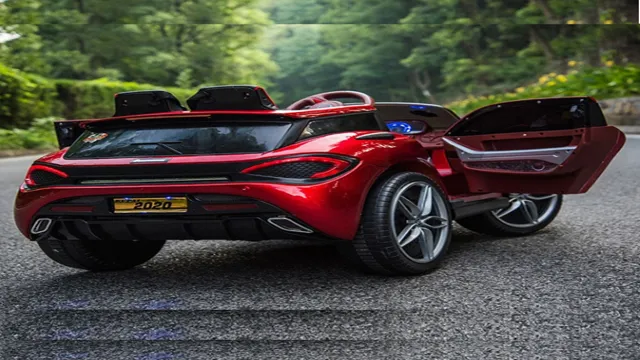
Lower fuel costs
Lower fuel costs are one of the many benefits that come with battery-powered vehicles. Rather than relying on gasoline or diesel, battery-powered vehicles utilize rechargeable battery technology to power their engines. This means that drivers can see a significant reduction in their fuel costs, as they don’t need to fill up at the pump as often, or at all in the case of all-electric vehicles.
Not only can this be more cost-effective for drivers, but it can also have a positive impact on the environment by reducing emissions. While battery-powered vehicles may have a higher upfront cost, the potential long-term savings on fuel costs make them a worthwhile investment for those looking to save money and reduce their carbon footprint.
Low maintenance costs
One of the major benefits of using battery power is the low maintenance costs that come with it. Unlike traditional gas-powered engines, battery-powered machines require very little upkeep, saving you time and money in the long run. With no need for oil changes, spark plug replacements, or fuel system cleanings, battery-powered equipment is much simpler to maintain and keep in good working order.
Not only does this make it more affordable to own and operate, but it also means you’ll spend less time performing maintenance and more time getting work done. Whether you’re using battery-powered tools for DIY projects or for professional purposes, the reduced maintenance costs make it an attractive option for anyone looking for a reliable and cost-effective solution. So why not make the switch to battery power and enjoy the benefits of a low-maintenance alternative?
Top Battery-Powered Electric Cars
Battery-powered electric cars are quickly becoming a popular choice for those looking to reduce their carbon footprint. With advancements in technology, battery-powered electric cars are now able to match the performance of traditional gasoline-powered cars. The Tesla Model S is one of the top battery-powered electric cars on the market today.
The Model S has a range of up to 373 miles on a single charge, making it perfect for long trips. Another great option is the Nissan Leaf, which has been a popular choice for many electric car enthusiasts. The Leaf has a range of up to 226 miles on a single charge and can be fully charged in just 8 hours.
If you are looking for a more affordable option, the Chevrolet Bolt is a great choice. The Bolt has a range of up to 259 miles on a single charge and is packed with features such as a rearview camera and a 2-inch touchscreen display.
No matter which battery-powered electric car you choose, you can rest assured that you are making a positive impact on the environment while enjoying the benefits of a high-performing car.
Tesla Model S
Tesla Model S The Tesla Model S is one of the top battery-powered electric cars on the market today. With its sleek design and impressive features, it’s no wonder that this car has become a favorite among many electric car enthusiasts. The Model S boasts a range of up to 373 miles on a single charge, making it one of the longest-lasting electric cars available.
It also has impressive acceleration and can go from 0 to 60 mph in just 4 seconds. The Model S is designed with luxury in mind, featuring a spacious interior with high-quality materials and advanced technology.
Tesla has also made significant strides in improving the battery technology of the Model S, making it one of the most efficient and reliable electric cars on the market. With the Model S, Tesla has truly set the standard for what a high-performance electric car should be.
Nissan Leaf
The Nissan Leaf is one of the top battery-powered electric cars on the market today. With its sleek design and impressive range, it’s no wonder why so many people are making the switch to this eco-friendly vehicle. The Leaf comes equipped with a lithium-ion battery that can be charged in just a few hours, and it has a range of up to 226 miles on a single charge.
This makes it ideal for long road trips or even just daily commutes. Plus, the Leaf is incredibly quiet and smooth to drive, as there is no engine noise or vibration. If you’re looking for a car that is both environmentally conscious and high-performing, the Nissan Leaf is definitely worth considering.
Chevrolet Bolt
The Chevrolet Bolt is one of the top battery-powered electric cars on the market today, offering an eco-friendly driving experience without sacrificing performance. With a range of over 250 miles on a single charge, the Bolt can easily handle day-to-day commutes and longer road trips alike. Additionally, its instant acceleration and responsive handling make it a joy to drive, whether you’re navigating city streets or winding roads.
Plus, the Bolt’s spacious interior and advanced technology features make it a comfortable and convenient choice for modern drivers. So if you’re looking for a powerful and eco-friendly electric car, the Chevrolet Bolt is definitely worth considering.
How Far Can You Drive on One Charge?
When it comes to battery-powered electric cars, many drivers wonder just how far they can go on a single charge. The answer to this question varies depending on the make and model of the car, as well as other factors such as weather, terrain, and driving habits. In general, most electric cars on the market today can travel between 100 and 300 miles on a single charge, with some models even surpassing the 400-mile mark.
Of course, it’s important to keep in mind that using certain features such as air conditioning or heating can drain the battery more quickly, and driving at high speeds or in hilly areas can also reduce the range. However, with advancements in battery technology and infrastructure, more and more drivers are embracing electric cars as a viable option for everyday transportation–and with good reason. Not only are electric cars more environmentally friendly, but they can also save drivers money in the long run on fuel costs.
Factors that affect range
When it comes to electric vehicles, understanding their range is an important factor to consider. The distance a vehicle can travel on a single charge depends on several factors. One of the primary factors is the battery size and type.
The bigger the battery, the further you can go. The type of battery also plays a role, with newer technology offering better energy density. The weather can also impact the range of the vehicle, with extreme temperatures causing the battery to work harder.
Additionally, driving habits can affect the range of an electric vehicle. Aggressive driving and frequent acceleration and braking can heavily decrease the range, while driving at a consistent speed can conserve energy and maximize the range. Overall, the maximum range of an electric vehicle is constantly improving as battery technology advances, providing drivers with a more efficient and sustainable driving experience.
Top electric cars with the longest range
Electric Cars with the Longest Range
The Future of Battery Technology
The future of battery technology is looking bright, especially in the realm of battery-powered electric cars. With advancements in lithium-ion batteries, electric cars are becoming more affordable and efficient. These batteries can now store more energy, making it possible for electric cars to travel greater distances on a single charge.
In addition to this, research is being done on solid-state batteries, which promise even greater improvements in energy storage and safety. As more and more car manufacturers introduce electric car models, battery technology will continue to evolve and improve. It’s exciting to imagine a future where electric cars are the norm, and we no longer have to rely on fossil fuels to power our vehicles.
As the demand for electric cars grows, so will the need for reliable and efficient battery technology. It’s clear that the battery-powered electric car industry is set to revolutionize the automotive industry and change the way we think about transportation.
Advancements in battery technology
The future of battery technology looks promising, as researchers are making advancements in battery design to meet growing energy demands. One such innovation is the solid-state battery, which uses solid electrolytes instead of liquid ones. This design promises improved safety, longer lifespan, and faster charging times.
Another promising technology is the lithium-sulfur battery, which could potentially provide four times the energy of a lithium-ion battery. Additionally, researchers are exploring the use of sodium-ion batteries, which could replace the need for lithium, a limited resource. The future of battery technology is truly exciting, as these advancements pave the way for more efficient and sustainable energy solutions.
As society becomes more dependent on technology, the demand for more powerful and reliable batteries will only continue to grow, making innovation in this field more critical than ever before.
Potential impact on the automotive industry
The future of battery technology has the potential to greatly impact the automotive industry. More efficient and long-lasting batteries can spur the development of electric cars, making them more accessible and affordable to the general public. With the increasing demand for eco-friendly transportation, battery technology has become a key focus for automakers.
Additionally, advancements in battery technology can lead to faster charging times and increased energy density. This means that electric cars will have longer ranges and faster recharge times, making them a more practical option for daily use. However, the adoption of electric cars is not without its challenges.
The infrastructure needed for widespread use of electric cars, such as charging stations, is still in its infancy. Furthermore, the production and disposal of lithium-ion batteries could have environmental impacts if not managed properly. Despite these challenges, the future of battery technology holds great potential for the automotive industry.
As research and development continue, we can expect to see even more efficient and affordable electric cars on the road in the coming years.
Conclusion
In conclusion, the battery powered electric car is like a superhero, silently whooshing by without leaving behind any toxic emissions. With its efficient use of renewable energy, it’s like the Captain Planet of the automotive world, fighting against the evils of climate change. So, if you’re looking for a car that’s both environmentally friendly and saves you money on gas, look no further than a battery powered electric car.
Because why settle for a mere mortal car when you can have a clean, sustainable ride of the future?”
FAQs
How long does the battery of a typical battery-powered electric car last?
The battery life of electric cars varies greatly depending on the car model, usage, and weather conditions. A standard electric car battery can last between 100,000 to 200,000 miles or up to 10 years, depending on usage and maintenance.
Are battery-powered electric cars more expensive than gasoline cars?
Battery-powered electric cars are generally more expensive than gasoline cars. The cost of building a battery-powered electric car is higher than that of a gasoline car due to the high-tech batteries and electric motor systems that they use.
Can you charge a battery-powered electric car at home?
Yes, it is possible to charge a battery-powered electric car at home using a charging station. You can install a Level 2 charger in your home for faster charging times. However, the charging time will depend on the capacity, battery type, and charging station.
Are battery-powered electric car batteries recyclable?
Yes, the battery packs used in electric cars are recyclable, and when they reach the end of their useful life, they can be recycled and their various components reused. The recycling process reduces the impact of battery disposal on the environment and allows the rare minerals that exist in them to be reused.
